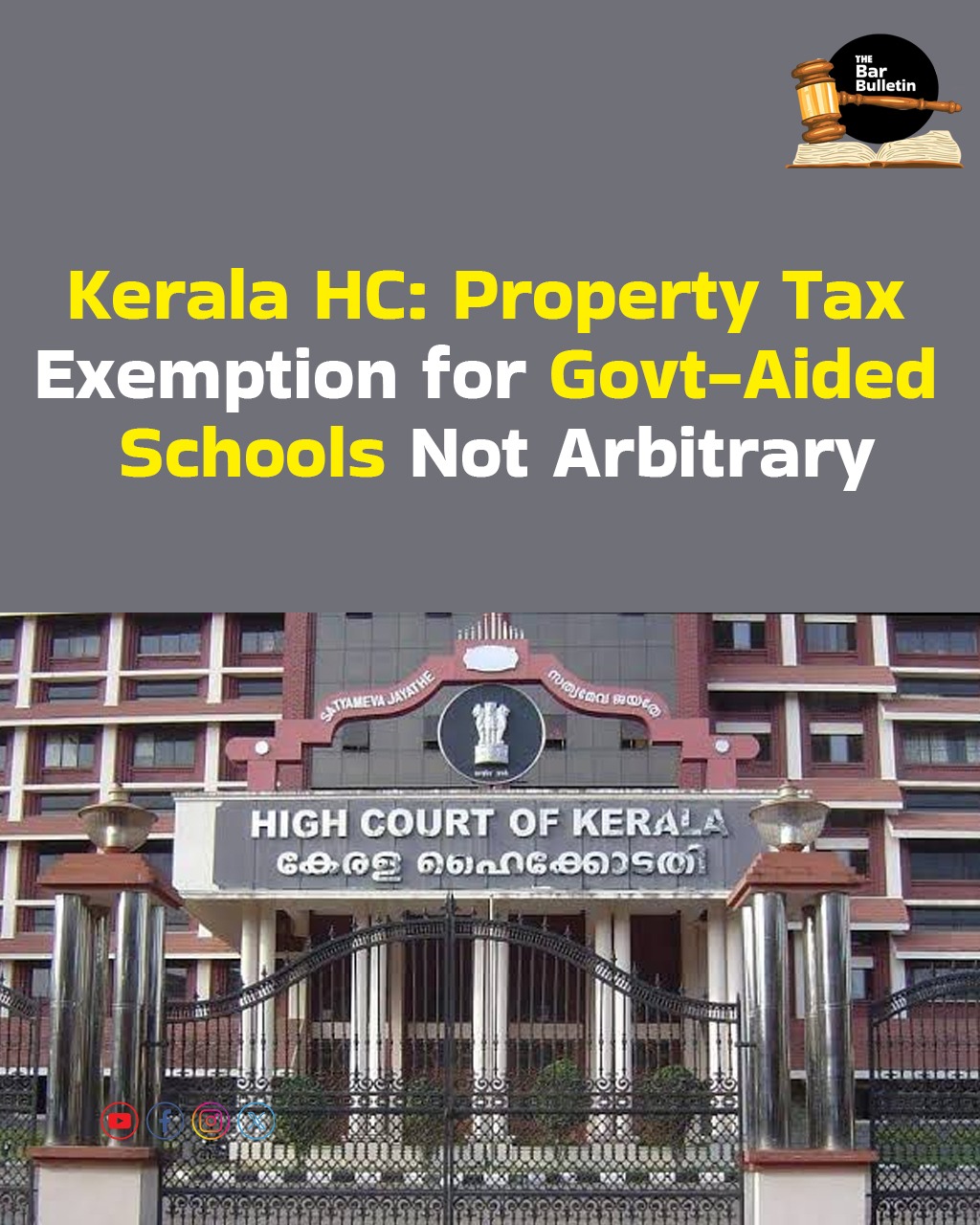While pointing out that the validity of a classification in a taxing statute depends on whether it effectively furthers the objective of the statute, the Kerala High Court ruled that the exclusion of unaided schools from property tax exemption under the amended Kerala Panchayat Raj Act and Kerala Municipality Act is not violative of Article 14 of the Constitution, as there was no unreasonable and arbitrary classification.
The Court explained that government-aided schools are distinguishable from unaided schools because they are financed through public funds, and taxing them would burden the exchequer. The aided schools provide education either free or at nominal cost, in fulfillment of the constitutional obligation of the State to provide education to citizens, whereas the unaided schools, on the other hand, operate on a private, fee-based model.
The Court also emphasized that the object of the amendment was to ensure rational allocation of tax exemptions, and the exclusion of unaided schools, which do not share this welfare character, is therefore justified. The classification between government/aided schools and unaided schools is based on ownership, funding, and mode of functioning, which constitute intelligible differentia.
A Single Judge Bench of Justice Ziyad Rahman A.A. reiterated that the constitutional validity of a statute can be questioned only on two grounds: (i) the enactment is beyond the legislative competence of the Legislature, or (ii) it violates the rights guaranteed under Part III of the Constitution. Since, in the instant case, the petitioners did not dispute the legislative competence of the State of Kerala in amending the Kerala Panchayat Raj Act, 1994, and the Kerala Municipality Act, 1994, the Bench opined that the sole ground of challenge that survived was a violation of Article 14 of the Constitution.
Explaining the test for permissible classification under Article 14, the Bench explained that the classification must be founded on an intelligible differentia, which distinguishes persons or things grouped from others left out of the group; and that differentia must have a rational nexus to the object sought to be achieved by the statute. The Bench added that taxing statutes are treated differently from general statutes because of the inherent complexity of fiscal policy, and the legislatures have a wide range of discretion and flexibility in making classifications for taxation, provided they adhere to the principle of equality.
Briefly, consolidated petitions were filed by several unaided schools and their managements in Kerala, contesting the constitutional validity of the amendments made through Kerala Finance Act (No.2) 2023 to Section 207 of the Kerala Panchayat Raj Act, 1994, and Section 235 of the Kerala Municipality Act, 1994. It was pleaded that before April 01, 2023, buildings exclusively used for educational purposes owned by government, aided, and government-recognized unaided schools up to the higher secondary level were exempt from property tax. However, the amendment removed the exemption for unaided schools, limiting it only to buildings owned by the government or those aided or financially assisted by the government. The petitioners contended that this change created an unreasonable and arbitrary classification, violating Article 14 of the Constitution of India, whereas the government opposed the petitions, arguing the classification was based on a rational nexus between the source of funding and the legislative intent under taxing statutes.
Appearances:
Advocate H. Ramanan, for the Petitioner
Advocate Deepa K.R, for the Respondent



